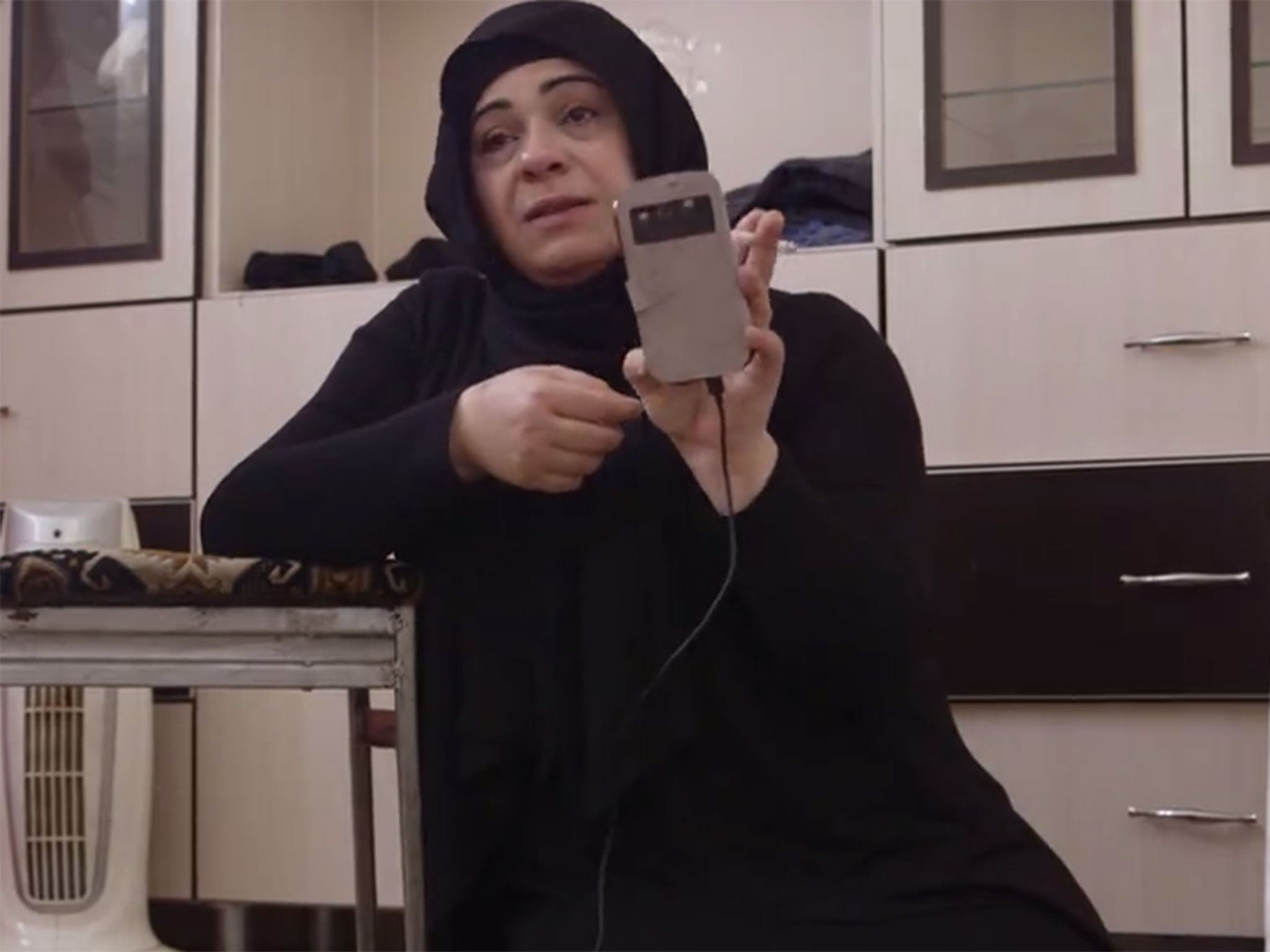Syrian woman explains why refugees need smartphones
For refugees, smartphones are for more than just Snapchat and Instagram

For many refugees, the smartphone is the most precious possession they own.
It can provide a link to an old life or help make sense of a new one. But some have criticised the widespread use of smartphones among refugees, ignoring the very practical uses the devices have.
“See why this phone is so dear?” Hala, a refugee from Aleppo, Syria, told a Channel 4 film crew for the documentary Children on the Frontline.
“It has everything. All my family, all my world is here.”
Hala left her home after her husband was kidnapped by Isis. With her daughters, she travelled through Turkey to Europe. She is now settled in Germany, though she lives in fear of never being able to see her home again. Now, the only way she can see her husband is through the screen of her phone.
“That’s why I’m always holding it. I’m holding on to it like I’m holding on to an address of my own, my family. This metal device has become my whole world.”
Smartphones can provide solace to migrants who have lost loved ones and been forced from their homes.
However, they also serve numerous practical purposes, leading them to be one of the most important objects in the possession of a displaced person. Such is their significance in refugee camps across the Middle East, NGOs now give out chargers for people to use as standard.
“Our phones and power banks are more important for our journey than anything, even more important than food,” a refugee from Syria, Wael, told AFP news agency.
The devices have a variety of important uses for refugees, including on the perilous journey from Turkey to Greece.
“We were sailing for 20 minutes when we could hear the engine was having problems,” said Firas, another Syrian refugee. “After around half an hour the engine completely died. We were exactly between Turkey and Greece. I know because I checked the GPS on my phone.”
As the weather worsened, the boat began to sink, and Firas contacted the coastguard on his smartphone and also sent them his location through GPS. He swam for seven hours, using his GPS to guide him to Lesbos. Many refugees taking the dangerous journey by boat through the Aegean will activate the GPS on their phones to update relatives and the authorities on the course and progress of their journey.
The map function on phones is vital on land too, being used for anything from making the long journey across Europe to simply finding a place to sleep.
“Every time I go to a new country, I buy a SIM card and activate the internet and download the map to locate myself,” Syrian refugee Osama Aljasem told the New York Times. “I would never have been able to arrive at my destination without my smartphone.”

The social media and messaging enabled by smartphones also play critical roles in connecting and re-connecting people. This is vital to stay in touch with worried relatives and for fellow travellers to pass on advice, giving them greater autonomy over their journeys.
In some cases, using a smartphone decreases the reliance on traffickers. However, these criminal groups also take advantage of smartphones. Many advertise their services on Facebook, creating pages such as ‘Smuggling into the EU’ to find customers and even promote special offers.
Join our commenting forum
Join thought-provoking conversations, follow other Independent readers and see their replies
Comments
Bookmark popover
Removed from bookmarks